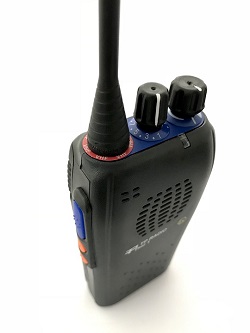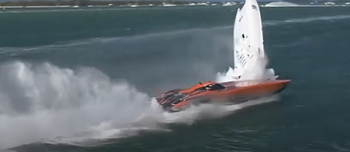If you are involved in a boating accident what is the first thing you must do? The first thing you must do is check on the casualty, whichever one it is. Second, check to see if anyone got thrown off. Next is calling out for help.
If you find yourself involved in a boating accident, the first thing that you must do is assess your situation. It’s important to know if anyone is injured and how severe their injuries are. If they’re not too serious, it may be best to wait for emergency assistance because time can be of the essence when it comes to responding to an injury.

Next, make sure everyone on board knows what their role in the boating accident response will be – whether that’s getting help or providing medical attention. Finally, take stock of any equipment onboard (like life jackets) and use whatever resources available onboard (e.g., boat flares) before waiting for emergency assistance so that responders can arrive as quickly as possible.

If you are involved in a boating accident what is the first thing you must do?
Stop engine of your boat
Stop the boat’s engine. If the vessel you are in is sinking, don’t panic. If possible, get everyone into a boat life preserver or onto the raft in case you have to abandon the ship. If your vessel is sinking, make sure everyone gets out and away from the boat as soon as possible. If the situation is not too severe, wait on the boat for emergency assistance.
If small boats are close by and able to come to your aid immediately, try to use a flare or radio for assistance. If you are able to, move your boat out of the way and into position so that small boats can easily get right up next to it. If you are in distress near a coastline or shoreline, stay close to shallow water that is safe for small boats and wait for emergency assistance. If you are in the water, but not near a coastline or shoreline, make sure to stay in the general vicinity of your boat so that you know where it is and emergency responders can locate you as quickly as possible.
Is anyone injured

Make sure no one is injured. If anyone is injured, ensure they receive proper medical attention. If there are no injuries, you have time to wait for emergency assistance. If anyone needs medical attention due to the boating accident, make sure they get it immediately. If they need to be evacuated from a boat or vessel, do not delay. Use VHF radio to contact the appropriate authorities and let them know the situation. Note down casualty’s name and address If anyone is injured, you will need to report it. If someone has minor injuries and will be fine, you will also need to report it.
Report to the proper authority
You should report the accident to a proper authority (e.g., if you are in Canada contact Transport Canada, If you are in the United States report it to the U.S Coast Guard). Do not hesitate to call for assistance. Call the Coast Guard If you feel like there is a life-threatening emergency and your situation will require immediate transportation by a medical services helicopter, call the Coast Guard.
Collect Information
Gather information If there are other people on board, ask them what happened. If other vessels were involved in the accident and you feel someone is responsible for it, get as much information from any witnesses on board or nearby as possible – try to write everything down while things are still fresh in your mind.
If all the boats involved were private craft, each person should keep their own log of important information so that it can be compared later. If the crash was caused by a larger boat, such as a ferry or cruise ship, passengers should note down the name and call sign of the vessel. If there is an investigation later on, this information could be very important to find out what happened. Make evidence If you are in a situation where you feel like your boating accident will need some legal assistance later on, make sure you collect evidence.
If you have a video camera, use it to record footage of everything that happened – if time allows, ask witnesses to give their own accounts and testimony on the videotape as well. If there is an injury or fatality involved in your accident, make sure pictures are taken of any injured persons or bodies with close-ups of any injuries and that it is clearly documented in what condition the body was found, as well as a description of how the person or persons were injured.
If possible, take pictures of what happened in relation to your boat as well – for example, if you collided with another boat, take pictures of where your vessel hit their vessel and try to document any damages. If there are witnesses that can confirm the facts of your accident, take their contact information and names so that you can give it to a lawyer to get their statements later on if needed.
Report it to your insurance carrier
Notify your insurer If you have insurance on your boat or vessel, make sure to notify them of any accidents or incidents that could cost the company money. If you don’t have insurance, it may still be a good idea to contact your insurer anyway.
Make a claim for damages If you feel like someone else is responsible for your accident, or that a third party’s vessel was involved and made the collision unavoidable, it may be necessary to file a claim against them. If there are any injuries involved, make sure to get in touch with an attorney as soon as possible so they can help guide you through the legal process.
Conclusion
If you’re on a boat and have an accident, the first thing you need to do is make sure that everyone is safe. But don’t panic. Making sure everyone’s safety comes before anything else. Next, stop your engine immediately in order to prevent further injury or damage.
